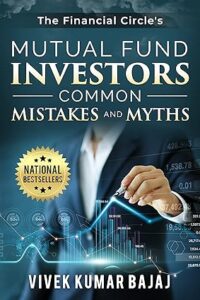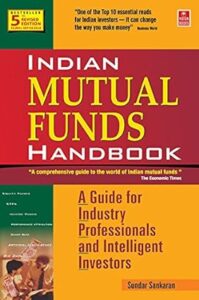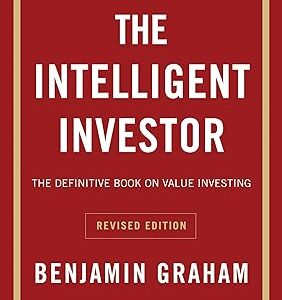Mutual Funds: A Path to Diversification and Growth, But Not Without Caveats
Mutual funds have become a cornerstone of modern investing, offering a convenient and accessible way for individuals to participate in the financial markets. They pool money from a large number of investors and invest it in a basket of securities, such as stocks, bonds, or a combination of both. This diversification helps spread risk and potentially smooth out market volatility. But before diving into the world of mutual funds, it’s crucial to understand their benefits, drawbacks, and how they might fit into your overall financial strategy.
Benefits of Mutual Funds:
- Diversification: This is arguably the most significant benefit of mutual funds. By investing in a single fund, you gain exposure to a variety of companies or asset classes, reducing your reliance on the performance of any single security. This diversification helps mitigate risk and potentially improve your portfolio’s overall stability.
- Professional Management: Mutual fund managed by experienced professionals who research and select investments based on the fund’s stated objective. This expertise can be invaluable, especially for those without the time or knowledge to manage their own portfolios.
- Accessibility: Mutual fund offer a low barrier to entry compared to directly investing in individual stocks or bonds. You can start investing with relatively small amounts, making them suitable for individuals with varying income levels.
- Convenience: Mutual funds handle all the buying and selling of underlying securities within the fund. This eliminates the need for individual investors to actively manage their portfolios, saving them time and effort.
- Liquidity: Most mutual funds offer high liquidity, allowing you to redeem your shares (sell them back to the fund) on business days, usually at the Net Asset Value (NAV). This provides flexibility if you need access to your money before your investment horizon.
- Variety of Investment Options: Mutual funds come in a wide range of investment styles and objectives. You can choose a fund that aligns with your risk tolerance and financial goals, whether it’s aggressive growth, income generation, capital preservation, or a balanced mix.
- Potential for Growth: Historically, mutual funds have offered the potential for significant long-term growth, especially those focused on equities. By capturing the collective growth of the underlying companies or assets, investors can benefit from market appreciation.
- Potential for Dividend Income: Some mutual funds, particularly those focused on income-generating securities like bonds, distribute dividends to shareholders on a regular basis. This provides a steady stream of income that can be reinvested or used to supplement your lifestyle.

Disadvantages of Mutual Funds:
- Fees and Expenses: Mutual funds charge various fees, including management fees, expense ratios, and sales loads (for some funds). These fees can eat into your returns over time, so it’s crucial to compare fees and choose a fund with a competitive expense ratio.
- Lack of Control: When you invest in a mutual fund, you relinquish control over the specific investments held within the fund. The fund manager makes the investment decisions based on the fund’s objective, which might not always align perfectly with your individual preferences.
- Market Risk: Although diversification helps mitigate risk, mutual funds are not immune to market fluctuations. The value of your investment can go down as well as up, depending on the performance of the underlying assets.
- Passive vs. Active Management: Not all mutual funds outperform the market. Actively managed funds aim to beat the market by selecting specific investments, but they often come with higher fees and may not always succeed. Index funds passively track a market index, offering lower fees but returns that typically mirror the market performance.
- Capital Gains Taxes: When you sell your mutual fund shares at a profit, you may be liable for capital gains taxes. Understanding the tax implications of investing in mutual funds is crucial for effective financial planning.
- Investment Horizon: Mutual funds are generally suitable for long-term investment goals. Short-term market fluctuations can lead to losses if you need to redeem your shares before the market recovers.
Choosing the Right Mutual Fund:
With the vast array of mutual funds available, selecting the right ones for your portfolio requires careful consideration. Here are some key factors to keep in mind:
- Investment Objective: Define your financial goals and investment horizon. Are you saving for retirement, a child’s education, or a down payment on a house? Knowing your goals will help you choose a fund with an appropriate risk-reward profile.
- Risk Tolerance: How comfortable are you with potential losses? Risk tolerance varies depending on your age, financial situation, and investment goals. Generally, younger investors can handle more risk, while those nearing retirement might prioritize capital preservation.
- Asset Allocation: Decide on the asset allocation that aligns with your risk tolerance. This involves the percentage of your portfolio invested in different asset classes like

“Know Your Mutual Fund” by Kishore Gidwani adopts a question-and-answer format, making it feel like a conversation with the author. It aims to be a comprehensive resource for anyone in India interested in learning about mutual funds. Here’s a breakdown of the key areas the book likely covers:
Demystifying Mutual Funds:
- The book unpacks the fundamentals of mutual funds, explaining how they work, the different types available (equity, debt, balanced, etc.), and their benefits and drawbacks.
- It clarifies crucial concepts like Net Asset Value (NAV), expense ratios, and different investment options like Systematic Investment Plans (SIPs) and Systematic Withdrawal Plans (SWPs).
Investor Behaviour and Risk Management:
- The book delves into investor psychology, addressing common pitfalls like emotional investing and chasing quick returns.
- It emphasizes the importance of risk management, discussing strategies for choosing funds that align with your risk tolerance and investment goals.
Investment Strategies and Long-Term Planning:
- The book explores different investment strategies, including SIPs for disciplined investing and asset allocation for portfolio diversification.
- It emphasizes the importance of a long-term perspective when investing in mutual funds, encouraging readers to focus on their financial goals and avoid short-term market fluctuations.
Beyond the Basics:
- The book might cover uncommon yet crucial aspects of mutual funds, such as formalities for non-resident investors and after-sales service requests.
- It likely offers guidance on navigating various transactions like buying, selling, and switching between funds.
Overall, “Know Your Mutual Fund” strives to empower Indian investors with the knowledge and confidence to make informed decisions about their mutual fund investments. By addressing a broad range of topics in a user-friendly format, the book aims to be a valuable resource for both beginners and those seeking to broaden their understanding of the mutual fund landscape.
It’s important to note that this is a summary, and the book likely offers a more in-depth exploration of each topic with specific examples and insights relevant to the Indian market.





Reviews
There are no reviews yet.